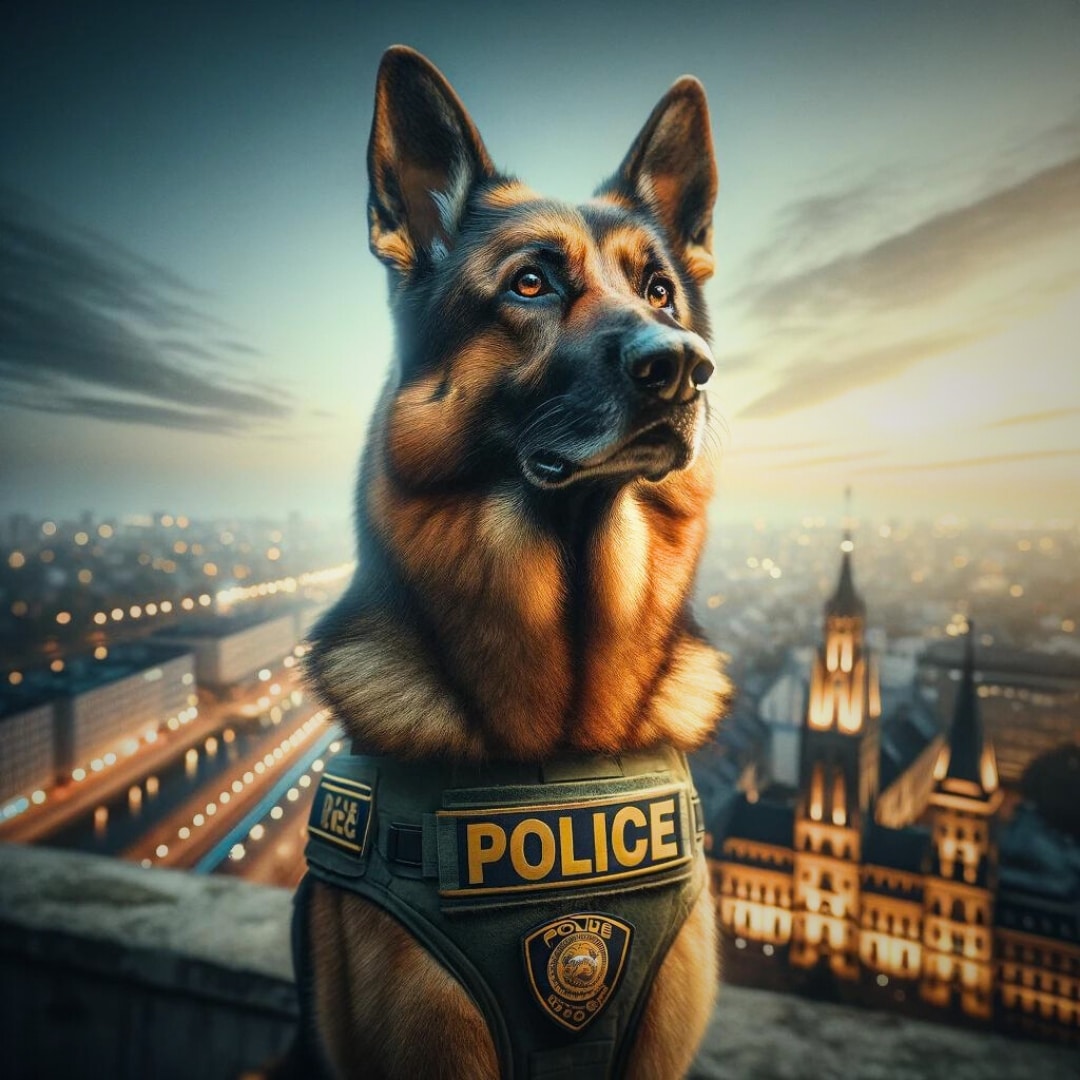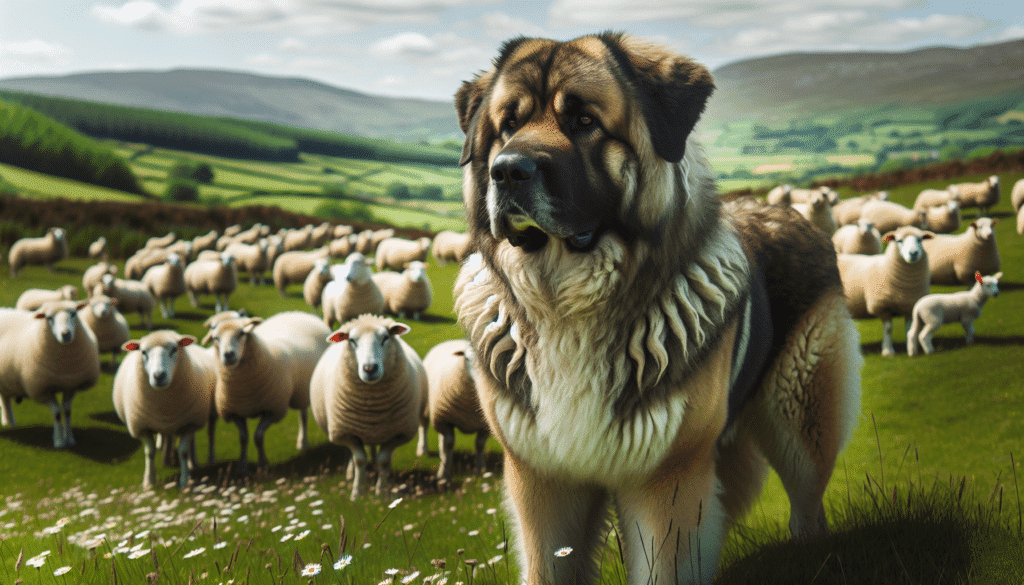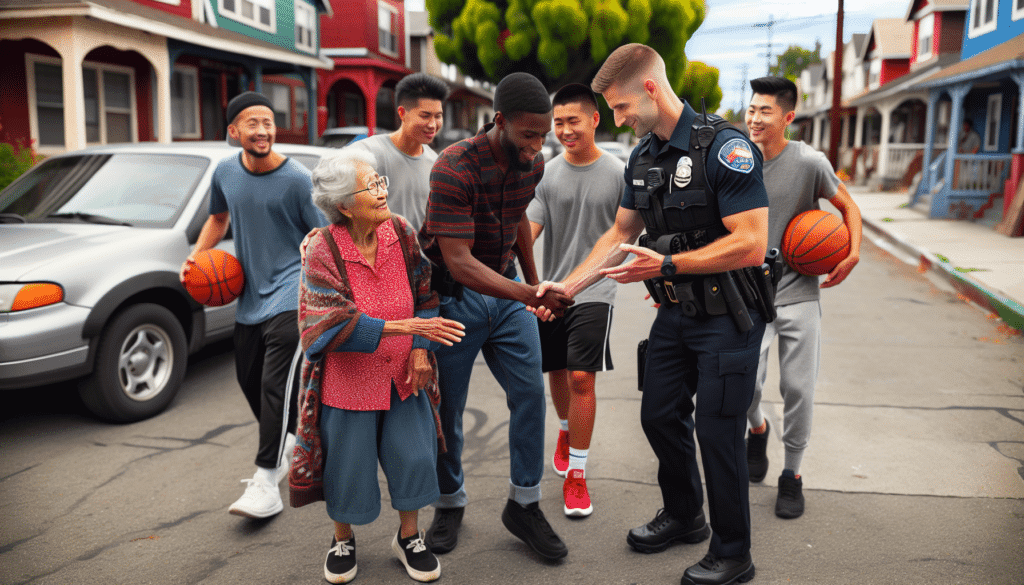
Have you everheard of the Sheepdog Mindset, or wondered what sets police and other law enforcement officers apart from the rest of the population? Clearly, they are not average citizens; they are the embodiment of alertness and commitment, trained to confront dangers with a mix of tact and tenacity.
This article unpacks the distinct mindset, roles, and evolution of sheepdog police officers, connecting their deep-rooted protective instinct to the complex realities of modern-day law enforcement.
Law enforcement officers, characterized as sheepdogs, serve a protective role in society, acting out of a sense of duty and responsibility to guard civilians (sheep) from criminals (wolves). They are poised to confront threats with courage and are prepared for action at all times.
The sheepdog mentality extends beyond the professional role, ingraining itself into the personal lives of officers, and emphasizes unwavering commitment, readiness, and the employment of non-forcible skills and tools to protect and de-escalate potential threats.
Police work is dynamically evolving with continuous education, technological advancements, and a focus on community engagement. Sheepdogs are encouraged to adopt a ‘guardian’ mindset, which requires balancing the protective instinct with compassion and effective communication with the community.

When Dave Grossman, a retired US Army Ranger, introduced the world to the sheepdog concept, he painted a vivid picture of societal roles that resonate to this day. In this triad, the sheep represent civilians, mostly gentle and defenseless, going about their lives with little thought to the wolves, those who harbor ill intentions.
Standing vigilant between them are the sheepdogs, law enforcement officers imbued with a natural protective instinct, a duty to shield the flock from the lurking predators.
These sheepdogs, more than mere figures of speech, embody real people who wear badges and uniforms, always ready for action. Their courage is not born from a desire for accolades but from a deep-seated sense of responsibility that compels them to act when others cannot. It’s a calling that requires a blend of bravery, empathy, and the willingness to confront what most fear.
At the core, the sheepdog mentality is about protection, service, and sacrifice. Law enforcement officers bear the weight of this noble role, accepting the risks that come with standing on the front lines. They are the guardians whose presence often goes unnoticed until danger rears its head, and then, with unwavering resolve, they step forward to face the wolves.
A sheepdog’s life is one of perpetual vigilance, characterized by a state of mental readiness known as ‘condition yellow’. This mindset is not merely about being alert; it’s about understanding the grave reality that wolves exist and that the sheepdog must be ready to confront them at a moment’s notice. The idea that they are modern guardians against societal dangers is not a mere job description; it’s a way of life that many find hard to grasp.
Much like the dynamic between actual sheep and their canine protectors, the sheepdog mentality is often misunderstood and sometimes underappreciated. However, those who embody this mentality do not seek validation; they are driven by a calling to protect lives, an endeavor that transcends personal safety and comfort. Their unwavering commitment to law enforcement values stands as a testament to their dedication, even in the face of criticism and adversity.
For some, the role of the sheepdog transcends the badge, intertwining with their spiritual lives and serving as protectors within their church communities. The sheepdog’s mission is not a temporary assignment; it’s a lifelong dedication that spills over into every facet of their lives, advocating for the possibility of a safer world for all.

The sheepdog analogy implies that, much like a shepherd’s dog among the flock, protectors should be an integral part of the community they serve. This integration is exemplified in community policing initiatives led by veteran officers who advocate for a compassionate and mental health-focused approach, strengthening the bond between police and public. The implementation of advanced technologies like cloud-based platforms and GPS has further increased officer accountability and service reliability, fostering trust within the community.
Specialized company police officers enforce laws tailored to the unique needs of different communities, demonstrating the adaptability and depth of modern policing. As a police officer in this field, there’s a growing call for law enforcement to transition from a ‘warrior’ mindset to a ‘guardian’ mindset, emphasizing the importance of:
community engagement
compassionate behavior
de-escalation techniques
problem-solving skills
In the world of marketing, it’s important to avoid over aggressive tactics, as they can often lead to negative results. But what can ensure a more gentle approach is just what taking inspiration from nature offers, such as the delicate beauty of a blue robin’s egg or the protective strength of a hard blue shell. In this competitive landscape, learning from other warriors in the marketing world can also be beneficial, as the vast majority have valuable insights to share.
However, the sheepdog model is not without its detractors. Critics argue that it may create an unintended divide, suggesting that law enforcement acts on the commands of the ‘master’ (society’s ruling class) rather than the will of the ‘flock’ (the general public).
The sheepdog’s training serves as the linchpin of their response when the peace of the flock is threatened. Proper training is critical for making quick and decisive actions in high-stress situations.
The ICAT program, which combines scenario-based learning with case studies, enhances officers’ critical decision-making, crisis recognition, and communication skills. Active threat assessment training further enables officers to objectively gauge the immediacy and severity of potential threats, informing their decisions on when to de-escalate and when force is necessary.
Studies suggest that military personnel, particularly officers with military backgrounds, might have a greater propensity to use force. However, training programs like Crisis Intervention Training are designed to equip officers with the skills to respond with compassion, utilizing de-escalation strategies to reduce the need for forceful interactions.
A support network, often anchored by the spouse, stands behind every sheepdog, facing unique challenges tied to their partner’s duty. Organizations like the National Alliance for Law Enforcement Support and Police Wives of America offer resources and a community for spouses to share experiences and find solace. In the tragic event of an officer’s death in the line of duty, resources and support, including peer support and counseling, are provided by Concerns of Police Survivors (C.O.P.S).
The stress of police work requires spouses to develop emotional resilience, use coping strategies like mindfulness, and seek professional counseling when needed. Coping with traumatic events as a couple is vital for the healing process, given the nature of incidents commonly encountered in law enforcement. Maintaining emotional and physical intimacy is crucial in these marriages, acting as a bulwark against the job’s demands on the relationship.
Financial stress and the transition to retirement from policing are additional common challenges that require effective planning and communication. Adopting the sheepdog mindset can help officers and their spouses live as the best versions of themselves, creating a supportive environment for their partnership. Effective communication is key to managing the intricate dynamics of police work and its effect on relationships.
With the constant changes in the landscape of law enforcement, officers need to continuously engage in education and training to stay updated with societal changes and new threats.
Technological advancements such as robotics and GPS tracking have brought new capabilities to crowd control and strategic planning, illustrating the progressive nature of policing methods. The significant presence of veterans in the police force, often through a military-to-police recruitment pipeline, has influenced the dynamics of police methods.
Retraining returning veterans in law enforcement is crucial to ensure that their military experience is appropriately adapted to civilian policing contexts, especially in matters of force. This retraining is part of the broader evolution of sheepdog policing, which seeks to harmonize the protective instinct of law enforcement officers with the evolving needs and values of the communities they serve.
As we reflect on the journey through the world of sheepdog policing, it becomes clear that the role of a sheepdog is multifaceted and ever-evolving. From embodying a protective instinct to employing a diverse array of tools, from integrating within society to confronting violence with a measured hand, these guardians play an indispensable role in the fabric of our communities.
The essence of the sheepdog is woven into the lives of those they protect and the families that support them. Let us honor their dedication and embrace the evolution of this noble calling as a beacon of hope in our quest for a safer world.
"Sheepdog" refers to all those in society who serve as protectors, including police, firefighters, EMTs, and military personnel, as mentioned in Col. (U.S. Army Ret.) Dave Grossman's book On Combat.
The sheepdog theory, as explained by Grossman, considers humans to have survival features of both predators and prey, allowing individuals to choose to be wolves, sheep, or sheepdogs.
Yes, military veterans make good police officers due to their sense of service and commitment, as well as their discipline.
The sheepdog mentality is a mindset where law enforcement officers see themselves as protectors of the community, always ready to confront threats and keep people safe.